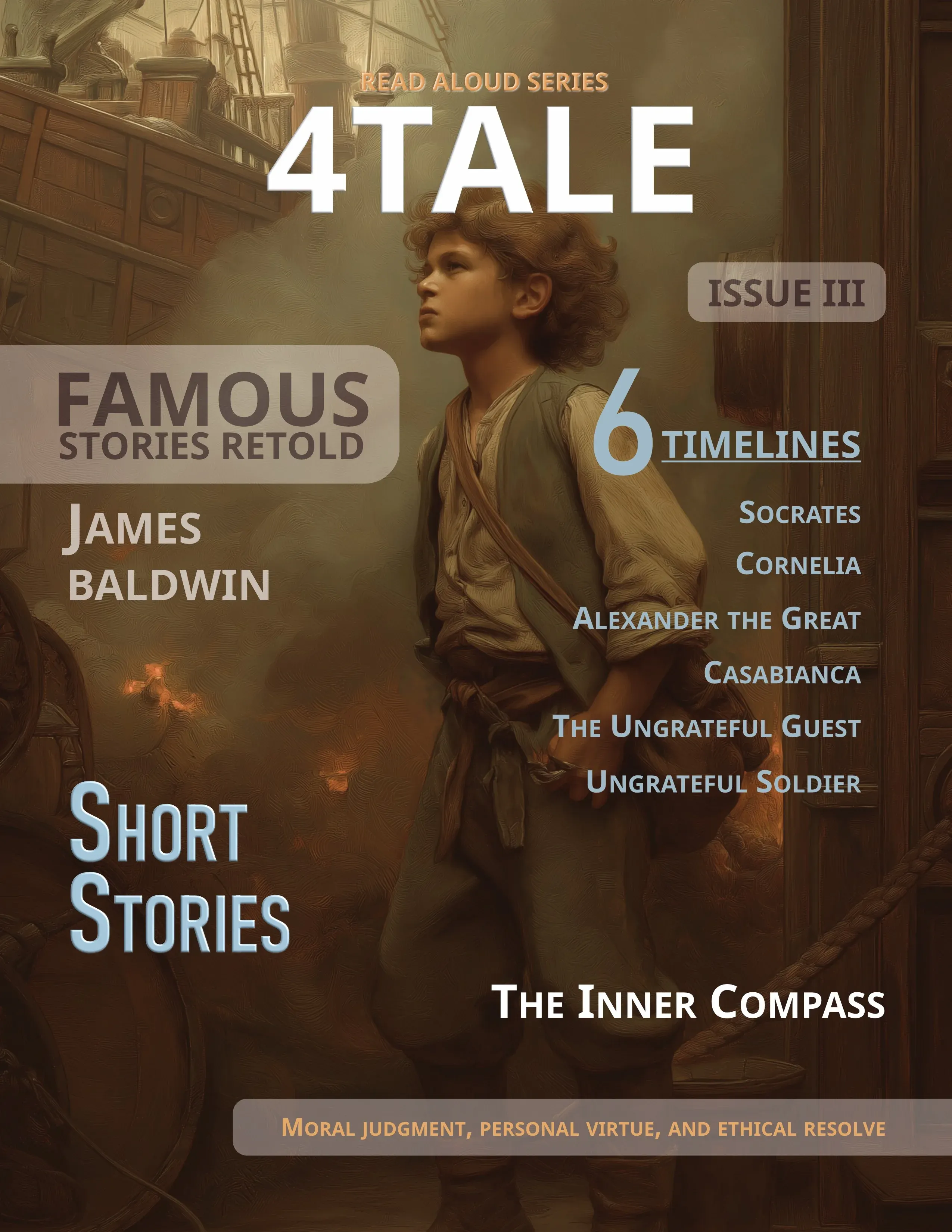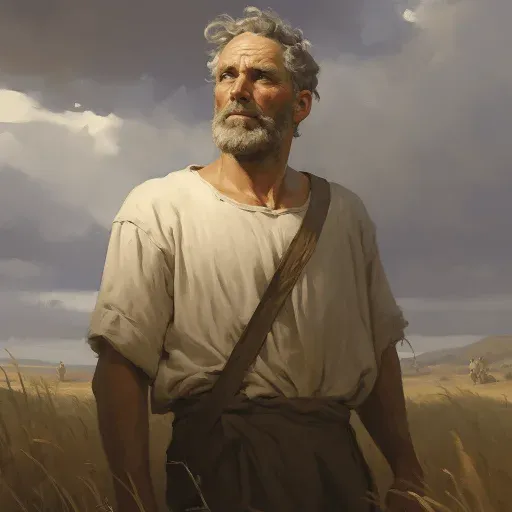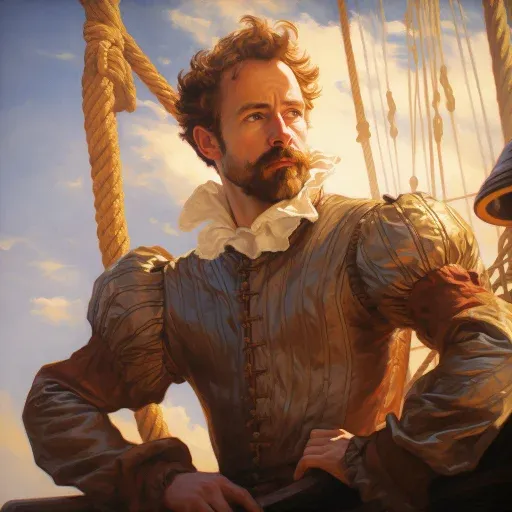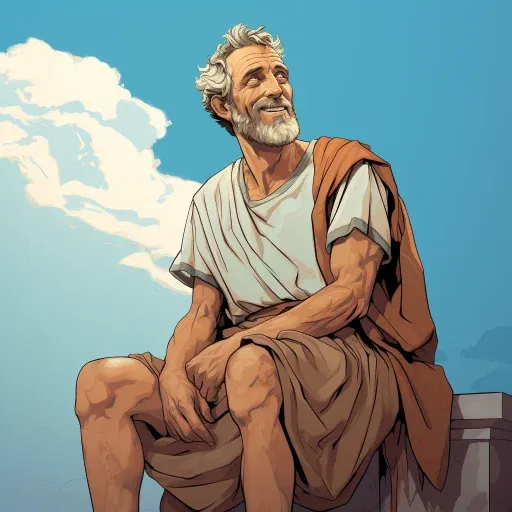BY JAMES BALDWIN
Alexander and Bucephalus
Famous Stories Retold: Story 34 of 50
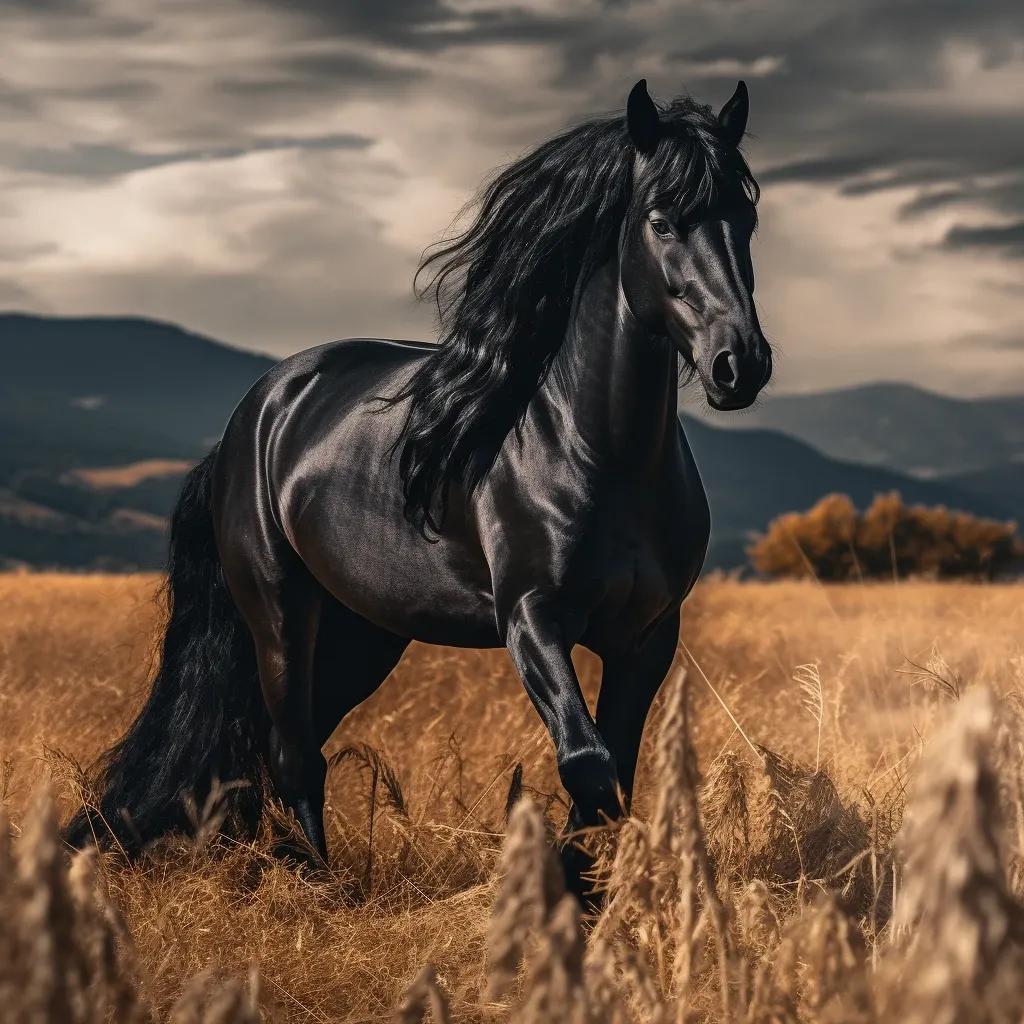
Heading

Wild Horse: Bucephalus was an untamable horse that none could ride until the young Alexander the Great stepped forward.
Taming: Alexander noticed Bucephalus was afraid of his own shadow, and by turning the horse toward the sun, he was able to mount and tame him.
A good book we like, we explorers. That is our best amusement, and our best time killer
- Roald Amundsen, Explorer
Bucephalus: Alexander the Great's Partner in Conquest
Delve into the epic saga of a legendary king and his extraordinary horse, a narrative teeming with heroism, friendship, and adventure. Traversing through this tale, you'll uncover the remarkable bond between Alexander the Great and Bucephalus, a bond forged amidst the trials of conquest and the battlefields. This enduring camaraderie has etched itself into the annals of history, revealing valuable insights about leadership, loyalty, and courage. Prepare to be captivated by this compelling narrative, offering you a fresh perspective on the life of one of history's most formidable warriors.
The Introduction of the Wild Steed, Bucephalus
A regal and noble creature of untamed ferocity, Bucephalus, was acquired by King Philip for a price that reflected his majestic stature. However, his unruly nature proved to be a challenge too great for any man to conquer. Attempts to discipline him with a whip only fuelled his wild spirit, leading the king to reluctantly order his removal. This wild steed, Bucephalus, would not be easily tamed, setting the stage for a young hero to rise.
Alexander's Bold Proclamation: Taming the Untameable
In the midst of the court's laughter and scorn, a young voice rose, challenging the perceived impossibility of taming Bucephalus. The voice was of none other than Alexander, the king's son. Disgusted by the ill-treatment of the horse, Alexander boldly proclaimed his confidence in taming the untameable Bucephalus. His audacity was met with skepticism, but undeterred, Alexander wagered the price of the horse on his success, laying the foundation for a legendary tale.
Podcast
The Ingenious Approach: How Alexander Conquered Bucephalus
As the court watched on with bated breath and anticipation, Alexander approached Bucephalus not with force, but with a gentle understanding. He noted the horse's fear of his own shadow and ingeniously turned him towards the sun. With calming words and soothing touches, Alexander managed to pacify the wild beast. In a swift, confident move, Alexander leaped onto Bucephalus's back. His ingenious approach had begun to conquer the untameable, a testament to his bravery and wisdom.
The Triumph of a Boy and His Horse: Proving the Naysayers Wrong
Against all odds, young Alexander proved himself to be a true horse whisperer, showing that the strength of character can sometimes outdo physical prowess. With everyone expecting a fatal outcome, the boy tamed the savage beast, demonstrating a level of courage and wisdom far beyond his years. His triumphant ride on Bucephalus silenced the laughter and turned it into awe-struck applause. This was not only a victory of a boy over a horse, but also a triumph of understanding over brute force, of love over fear. Alexander had not only tamed Bucephalus, but he had also proven the naysayers wrong.

A Bond Unbroken: The Unshakeable Friendship of Alexander and Bucephalus
After their initial encounter, a bond of trust and respect was formed between Alexander and Bucephalus that would stand the test of time. Their friendship was not one of mere convenience or necessity, but a bond of mutual respect and trust. Bucephalus became more than just a horse to Alexander - he was a companion, and a confidant. Bucephalus was said to allow no man other than Alexander to mount him, a testament to their unique relationship. This unshakeable bond between a boy and his horse became the stuff of legends, a symbol of enduring friendship and loyalty.
The Legacy of a King and His Steed: Alexander the Great and Bucephalus in Battle
In the ensuing years, Alexander, mounted on Bucephalus, led his armies to conquer many lands, earning him the title Alexander the Great. Bucephalus carried him through many fierce battles, showcasing the same bravado that his master did. The horse's strength and his master's strategy were a formidable combination on the battlefield. Theirs was a partnership that turned the tides of war and carved out an empire. The legacy of Alexander the Great and his faithful steed, Bucephalus, is one of great courage, seamless teamwork, and unyielding determination. Together, they show us that with trust, respect, and a common purpose, nothing is beyond reach.
Conclusion
In closing, the saga of Alexander the Great and his steed Bucephalus offers profound insights into the strength of an unwavering bond and the power of understanding. Their tale illustrates that genuine leadership is not about dominating but understanding, caring, and guiding. The indomitable spirit of Alexander coupled with Bucephalus' fierce loyalty has etched a story in the annals of history that continues to inspire and captivate. Ultimately, their enduring friendship and shared conquests serve as a testament to their greatness, forever enshrining them as a legendary duo in the tapestry of time.

